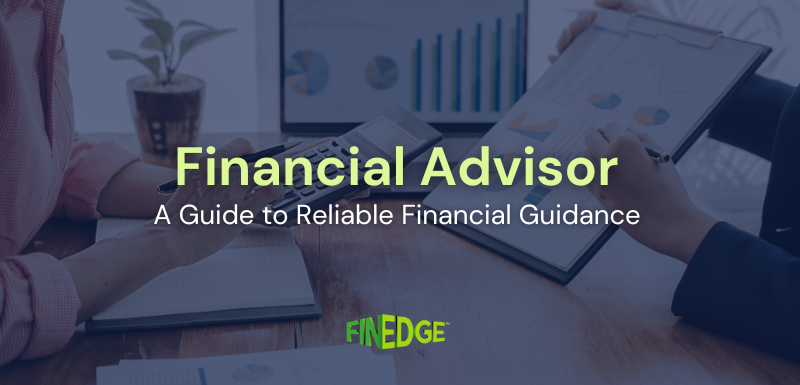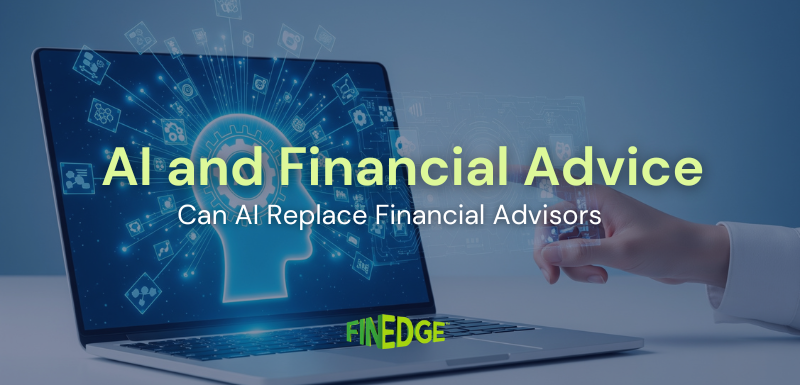5 Signs that your 'Advisor' is really a Salesperson

Read this blog to know five common tell-tale signs that you’re dealing with a salesperson and not a Financial Advisor. To know more, Visit us Now!
Ever found yourself wondering if your Financial Advisor is really just a seller of Financial Products? You’re not alone. It’s an uncomfortable truth that the Financial Services industry is riddled with conflicts of interest, and that only a handful of genuine Advisors out there are really acting in your long-term interest. Here are five common tell-tale signs that you’re dealing with a salesperson - and not a Financial Advisor.
They don’t care much about your goals
Has your Advisor engaged in a granular discussion with you about your Financial Goals and dreams for the future? And has he or she evaluated your attitude towards risk taking? Has this discussion resulted in the creation of a robust Financial Plan that acts as a roadmap towards the achievement of your unique Financial Objectives? Or, has your Advisor conveniently skipped ahead and suggested the ‘best’ investment product for you, without even bothering to understand whether the product in question is in sync with your risk tolerance and personal requirements? If the latter is true, you’re dealing with a salesperson who isn’t looking to provide you with a solution; but is merely interested in peddling their own products. In other words, your ‘Advisor’ is a salesperson!
They’re always pushing Life Insurance products
Ever marvelled at how your Bank Relationship Manager tends to position Life Insurance as the one stop solution to everything? From creating wealth to funding your child’s college tuition fees to generating retirement income, salespeople will always find a way to pitch a life insurance policy to you. More often than not, the fine print on these policies will make your head spin, and their ‘returns’ will be so opaque that it will take a high degree of expertise with MS Excel to even arrive at the number accurately! The reason for this is simple – Life Insurance products pay hefty upfront commissions to agents, to the obvious detriment of the policy buyer. A Financial Advisor, on the other hand, may advise you to take up a pure risk product such as Health Insurance or Term Insurance, but will never recommend a product that combines protection with investment or saving.
They keep coming back to you with the ‘flavour of the month’
If every courtesy call is really just a sales pitch in disguise, you’re definitely not dealing with a Financial Advisor! While a Financial Advisor will be genuinely interested in your personal well-being and in building a lasting relationship with you, a salesperson will only remember to call you when they need to get you to invest in a new Life Insurance Policy, NCD issue, New Fund Offer or the like. Remember- behind those pesky monthly calls from your Bank Relationship Manager is the hard hand of a sales manager who is pressuring them to achieve their monthly target by ‘selling’ a Financial Product to you at any cost! That’s obviously not the best way for you to receive high quality financial advice, as your hard-earned money just becomes a means to an end for the salesperson.
Their behaviour is transactional in nature
A defining hallmark of a Financial Advisor is the non-transactional nature of their dealing. Genuine Financial Advisors will take real interest in your life – your family, your work, your dreams and your goals; because they understand that your personal finances are inextricably linked with your current and future life situation, as well as your personal values and attitude towards money. Salespeople, on the other hand, work in a highly ‘transactional’ manner – only reaching out to you as a checkbox activity with a specific agenda in mind. More often than not, salespeople will perform a vanishing act once they’ve achieved their ‘target’ by selling you a product! Advisors, on the other hand, will proactively reach out to you on an ongoing basis, to review your investment portfolio and your financial goals.
They don’t take interest in your service-related issues
While a genuine Financial Advisor will delight in successfully resolving your service-related issues, salespeople will sweep them under the carpet and hope that they go away on their own – or that you forget about them! More often than not, you’ll need to aggressively pursue a seller of financial products to help you with your support queries, because it’s going to be the least of their priorities – after all, they’ve got their targets to meet! A Financial Advisor, however, understands that the client-advisor relationship is a long-term journey where the Advisor’s success lies in the success of the client in achieving their financial objectives. With that in mind, they cater to every issue more diligently, as the concept of ‘After Sales Support’ does not exist for them – because a sale was never made in the first place!
Your Investing Experts
Relevant Articles
How to Select the Best Financial Advisor: A Professional Step-by-Step Guide
Selecting the right financial advisor goes beyond credentials or returns, it’s about finding a partner who understands your goals, values transparency, and guides you with objectivity and discipline.
5 Signs that your 'Advisor' is really a Salesperson
Read this blog to know five common tell-tale signs that you’re dealing with a salesperson and not a Financial Advisor. To know more, Visit us Now!
Can AI Replace Financial Advisors? What Investors Should Really Expect
The rapid growth of AI in financial services has made many investors wonder whether AI can replace financial advisors. AI brings speed, automation, and powerful analytical capabilities, but meaningful financial planning requires far more than data. Investors need guidance that adapts to life changes, supports decision-making during uncertainty, and connects financial choices to long-term goals. That level of interpretation and behavioural understanding remains uniquely human, making the future of wealth management a blend of technology and human expertise.
.png)

